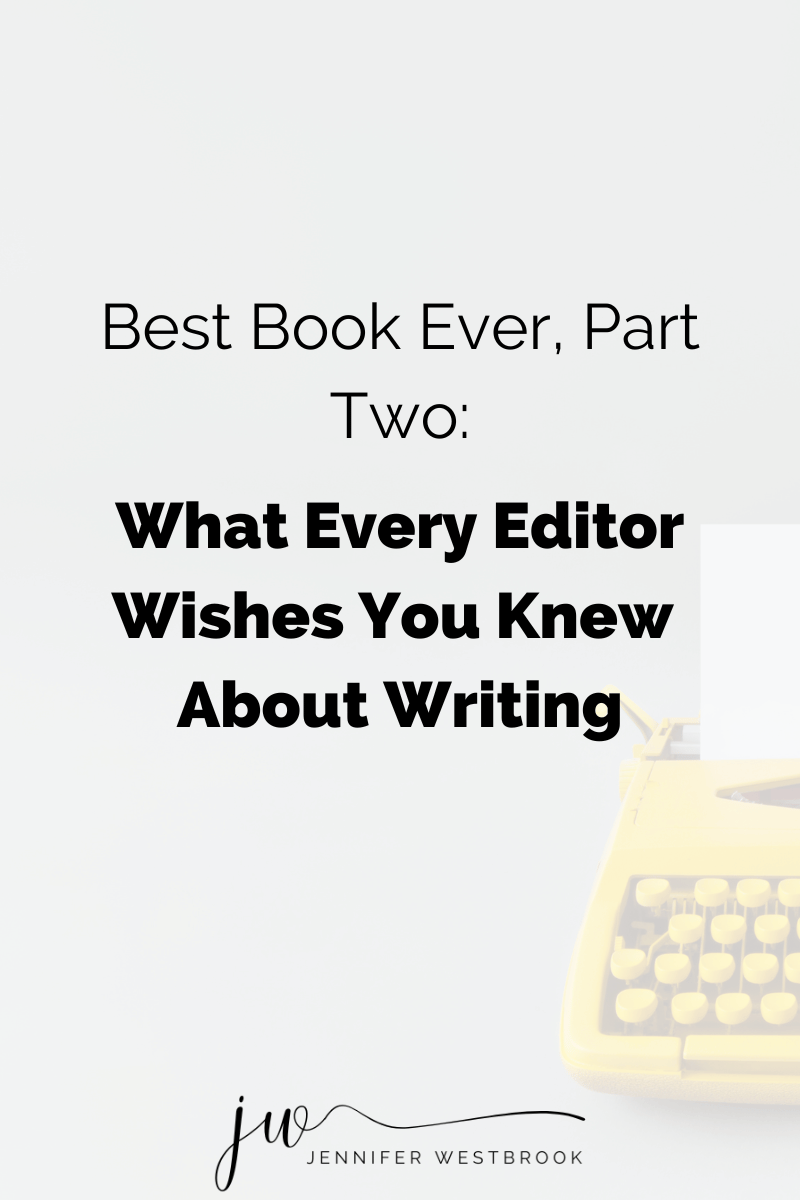Best Book Ever, Part Four: What Ghostwriters Really Do
- Jennifer Westbrook

- May 8, 2020
- 3 min read
Updated: Jun 6, 2023
Well, here we are—the final part of the Best Book Ever Series! If you’ve missed any of the first three installments, head on over to Part One so you can catch up on all the book-writing goodness that’s oozing out of the last few posts.
Today is all about ghostwriting. Now, I guess I’m a bit biased, but I view ghostwriting as a great thing because I’ve seen how it has rescued my clients who were struggling to figure out how to start writing a book.

You see, I know there are lots of people out there who have a story to share and want to know how to become a writer.
But they’re so bogged down with everything else going on in their life that it’s hard to start—or finish—writing that book that’s bottled up inside.
Or, maybe in your case, you’ve got time, but writing doesn’t come easily to you, so you struggle to put the right words together, and that keeps you spinning your wheels for what seems like forever.
And perhaps you’ve heard that ghostwriting is “cheating” or that you’re “not a real author” if you use it, so you’re afraid to try it.
Well, I’m here to free you today because the truth is this:
Some of the most successful, high-powered authors in the world use ghostwriters. These superstar authors understand the value of their message, and they’re willing to get help writing so they can share that message with the world as quickly and seamlessly as possible.
So if you’ve been wondering what ghostwriting is all about and whether it’s right for you, read on.
What’s a Ghostwriter?
A ghostwriter is essentially a person who an author hires or commissions to write for them. People use ghostwriters for all kinds of works—speeches, academic works, blog posts, and more.
In the case of book writing, a ghostwriter does the work of writing the book for the author, but credit for the book goes to the author’s name, not the ghostwriter’s.
The ghostwriter’s name does not appear on the cover or anywhere in the book, either. Everything is attributed to the author. In most cases, the ghostwriter is unknown to everyone except the author and people involved in the editing process unless the author chooses to give their trusted writer a shoutout.
The Difference Between Editing and Ghostwriting
The difference between manuscript editing and ghostwriting is that an editor does not write your book unless you’ve hired an editor who is also a ghostwriter. And you engage them to serve in both roles.
A ghostwriter writes your book from start to finish. But an editor works on a book that’s already written, so they don’t do a substantive amount of writing for you in most cases.
Why Use a Ghostwriter, and How Does it Work?
One of the biggest reasons authors struggle to write their books is time. Everyone is super busy these days, so it’s challenging to carve out time to create a daily writing habit. And if you struggle to write consistently, it could take a long time to finish (or start) your book.
A ghostwriter relieves the pressure on you by taking on the responsibility of writing the book. Each ghostwriter has its own process, but generally, you’ll collaborate with them to outline your ideas in as much detail as needed, then the ghostwriter fleshes them out and creates the manuscript.
Depending on the scope of your project, your ghostwriter may also do some research for you or collect background information that will be helpful to their process.
You’ll have checkpoints to review their work and make revisions, and then you’ll arrive at a completed draft that’s ready for the editing process. That’s basically it!
Conclusion
So there you have it—ghostwriting in a nutshell. Some of the most popular authors out there get this invaluable support, so don’t be afraid to try out this process to save yourself time and energy, so you can get your book published as soon as possible.
If you’re looking for more advice on how to write your book, drive traffic to your website or blog, or just grow your business overall, a strategy call with me is the perfect solution for you.
For ninety glorious minutes, you’ll share your burning questions about what’s been keeping you frustrated and stuck in a perpetual state of procrastination or confusion.
And I’ll share advice and strategies on how to break you out of it so you can get on the path to clarity and productivity in your business.
Grab your strategy call today and prepare to get unstuck.
by Jennifer Westbrook | JenWestWriting












Comments